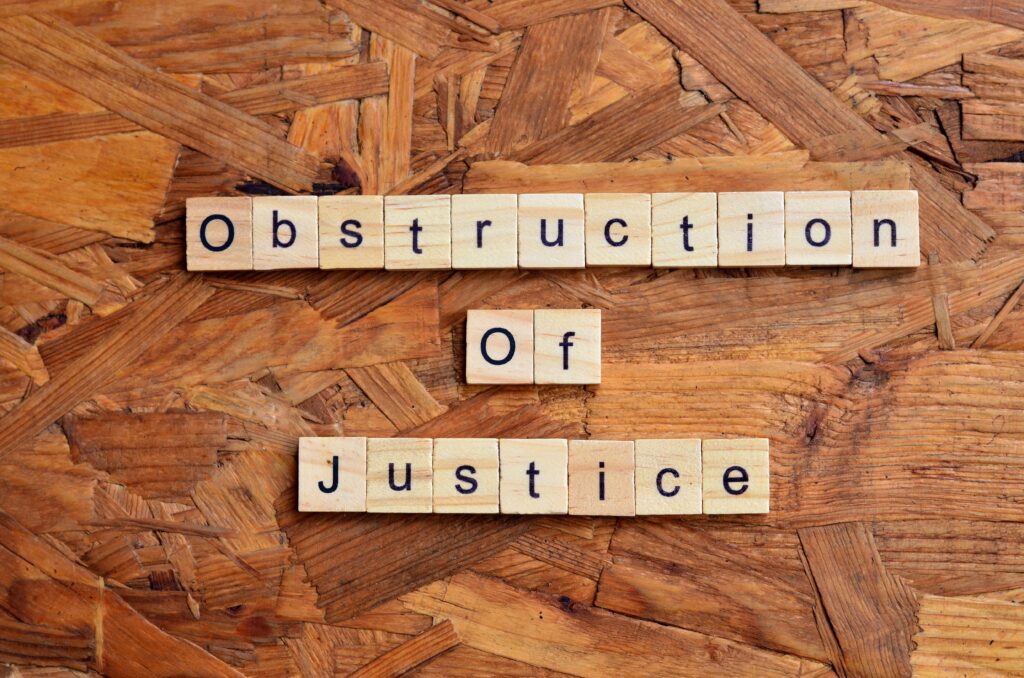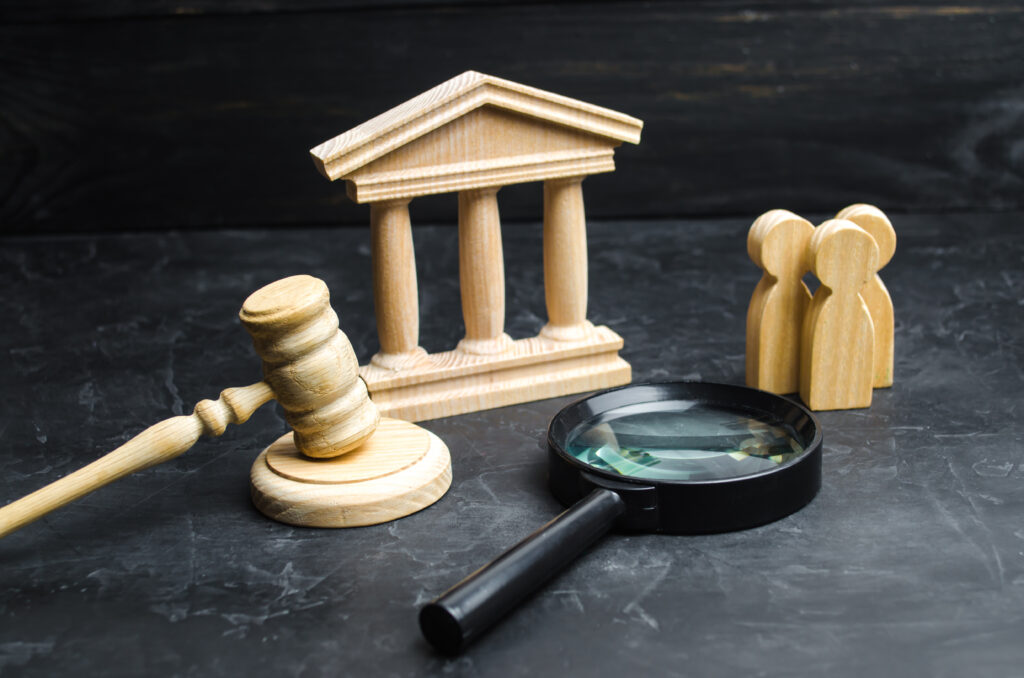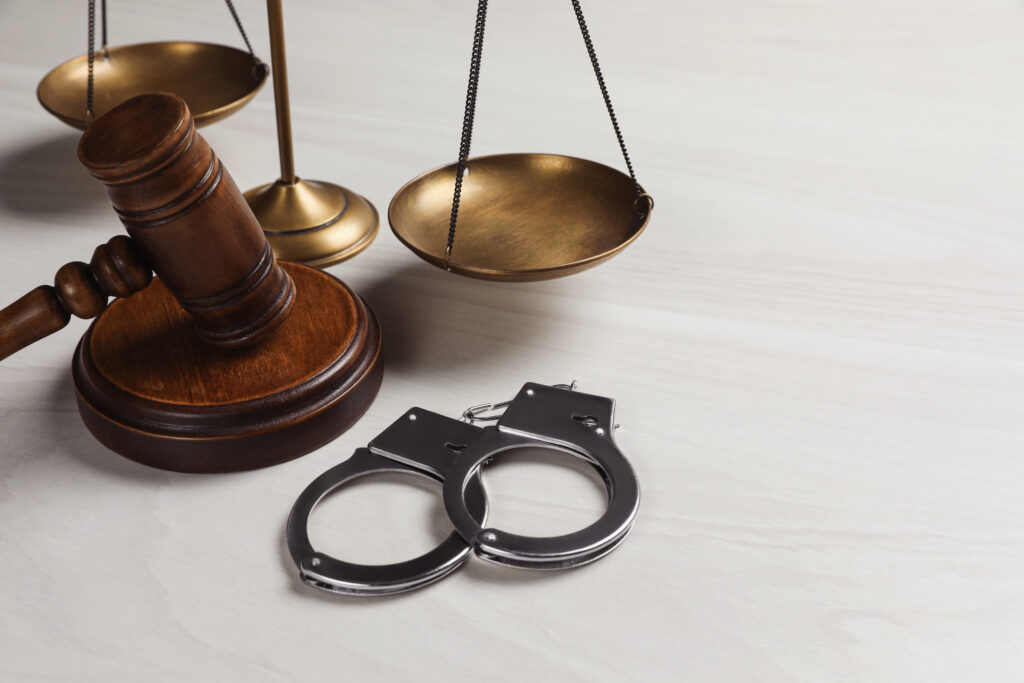When authorities accuse you of getting in the way of legal proceedings, you can face serious consequences - fines, penalties, and jail time. That's why you need a criminal defense lawyer who understands your rights and potential legal defenses when facing charges of obstructing justice.

Obstruction charges exist to prevent people from disrupting legal operations and refer to intentionally delaying or blocking an officer’s action to seek justice.
Obstruction may take several forms, including causing harm or threatening unlawful harm. It doesn't have to involve a physical act; it just has to violate the law. Lying to the police can result in obstruction of justice charges.
You may face a lengthy prison term if you try to stop the legal actions of a witness, public official, law enforcement, private investigator, or the legal process itself. If you face obstruction charges, hire a criminal defense lawyer in San Angelo, Texas immediately.
Types of Obstruction of Justice Cases Under Texas Law
Obstruction of justice in Texas may include:
- Witness tampering,
- Tampering with evidence
- Disrupting apprehension or the prosecution of a suspect
- Obstruction of a police officer, including misleading or lying to the police
- Obstruction of justice in a federal case, or
- Interfering with public duties.
Let's take a closer look at what these activities involve.
Witness Tampering

Per Penal Code § 36.05, witness tampering happens when someone tries to intimidate or influence a witness in a legal case. This discourages the witness from telling the truth or altering their statement. Obstruction of this type might include threatening a witness or bribing them.
Tampering with Evidence
Texas Penal Code § 37.09 covers tampering with evidence. This crime involves hiding or destroying evidence with the intent to prevent it from being available legally.
Disrupting Apprehension or Prosecution
Authorities can charge you with hindering a suspect's apprehension or prosecution if you help them hide from the law.
Obstruction of a Police Office
Resisting arrest or obstructing the duties of the police, including using force, can lead to serious charges of obstruction.
Obstruction in a Federal Case
You can be charged with obstructing a federal investigation or proceedings in addition to state charges, thereby lengthening incarceration time.
Interfering With Public Duties
Public servants such as firefighters, police officers, and paramedics perform public duties. Hindering them while they're working can result in obstruction charges.
Penalties and Fines for the Obstruction of Justice
Charges for obstruction of justice may range from misdemeanors to felonies.
Class C Misdemeanor

You can face a Class C Misdemeanor and fines up to $500 for obstruction of justice if you lie to a police officer.
Moreover, providing false personal information during an arrest can escalate the charge to a class B or class A misdemeanor, depending on the circumstances.
Class B Misdemeanor
Resisting arrest without the use of physical force may result in authorities charging you with a class B misdemeanor for obstructing justice. This charge can lead to a fine of up to $2,000 and up to 180 days in jail.
Class A Misdemeanor
If you hinder a paramedic during an emergency, you may be arrested and charged with a class A misdemeanor for obstructing justice. This charge may lead to a year in jail and a fine of up to $4,000.
State Jail Felony
A state jail felony applies if you tamper with evidence, for example, that is associated with a drug possession charge. Jail time ranges from 180 days to two years, with a fine punishable up to $10,000.
Third Degree Felony Charge
You can face charges of a third-degree felony for obstruction of justice if you are involved in witness tampering, including property damage or theft. This conviction leads to two to ten years of jail time and a fine of up to $10,000.
Second Degree Felony
Giving false details or a false alibi in a murder investigation can lead to incarceration in a federal prison of two to 20 years and a fine of up to $10,000.
First Degree Felony
You can face prison time of five years to life and a fine of up to $10,000 if you aid an escapee to prevent their capture or prosecution in a capital murder case.
Why You Should Contact a Criminal Defense Lawyer
If you face an accusation of obstruction of justice, a lawyer can support you in many ways. Below are the advantages you'll experience by retaining a lawyer for your defense.
Evaluation of the charges and evidence
A lawyer will review the charges against you and analyze all the details. They can also evaluate the strengths or weaknesses of the case and then advise you on the best legal strategy.
Explanation of the legal process
Obstruction of justice can have a complicated set of charges, so hire a lawyer to explain it. They can also let you know about any penalties that come along with a conviction.

Negotiations with prosecutors
A lawyer's negotiation skills can be useful when speaking on your behalf - especially with prosecutors. In turn, they might get the prosecutor to do something that benefits your case, whether reducing or dismissing your charges.
Challenging the evidence
If investigators made any errors while collecting and acquiring evidence, a lawyer could file motions to suppress the evidence, weakening the prosecution's case.
Representing you in court
In trial cases, a lawyer will always provide support, representing you in every way possible, whether they are cross-examining witnesses or presenting evidence.
Lightening the sentence
A lawyer can argue for lighter sentencing options like probation rather than prison time if the court convicts you.
Appealing the verdict
A conviction doesn't necessarily end your case. A lawyer could appeal if any legal mistakes occurred during the conviction.
Consult a Texas Criminal Defense Attorney Now
Obstruction of justice charges can lead to severe penalties such as fines and prison time. An experienced criminal defense lawyer is your best option for protecting your rights and future. Discuss your charges and defense with a defense firm near you that handles obstruction charges.
